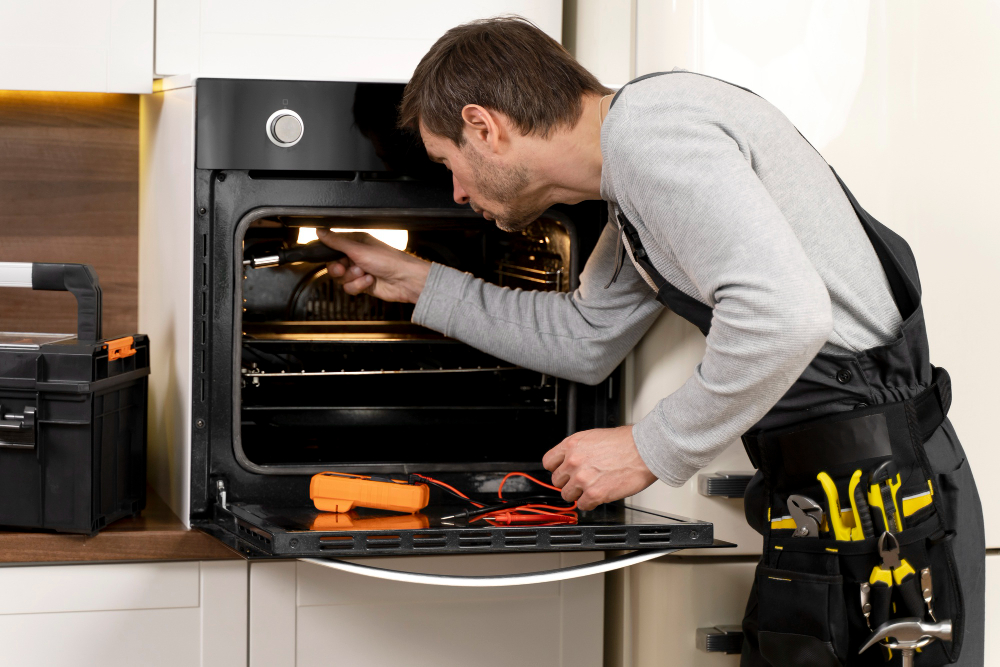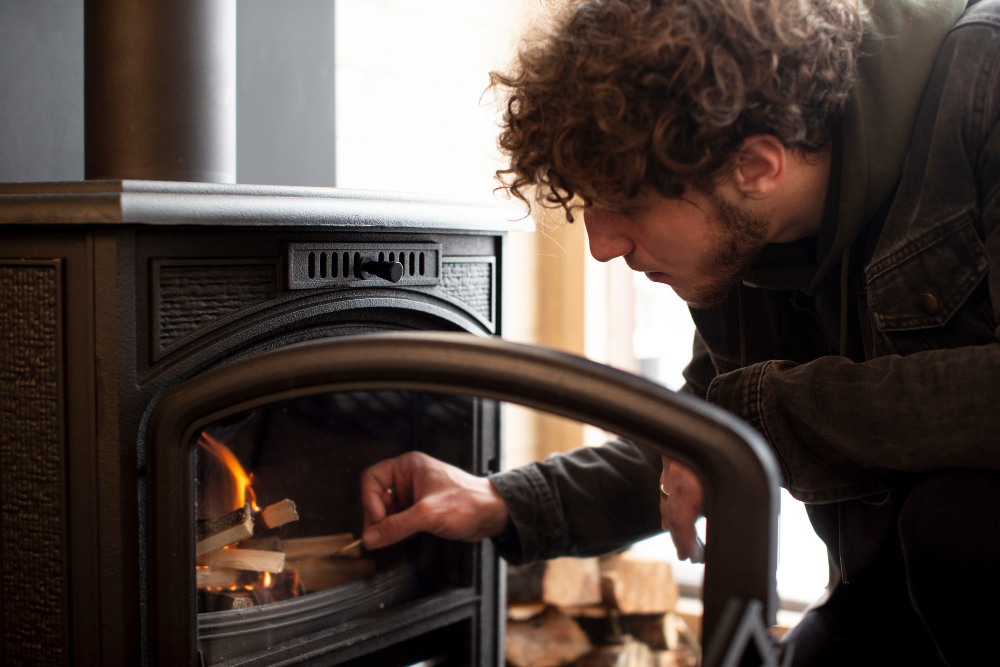Broken Oven? 5 Signs You Need an Oven Technician
You’re no stranger to the smell of fresh cookies, but what if your oven starts acting up? Maybe it’s making weird noises, or perhaps it’s not heating evenly. Don’t panic! Here’s a quick guide to help you spot the 5 signs that it’s time to call in an oven technician.
You shouldn’t be left with a cold turkey or half-baked bread. Read on, and let’s get your oven back in tip-top condition.
Unusual Oven Heating Patterns
If you’re noticing strange heating patterns in your oven, it’s a clear sign you need to call in a professional. You aren’t imagining things. Inconsistent temperatures and heating delays are common issues in ovens that need attention.
Say you’re preheating your oven, but it takes longer than usual, or the temperature fluctuates unpredictably, you’ve got a problem on your hands. This isn’t just inconvenient, it’s affecting your cooking and baking too. Your dishes might come out half-baked or overcooked because of these temperature swings.
Ignoring it won’t make it go away. You need to address these heating issues promptly. So, don’t hesitate, reach out to a reliable oven technician today.

Strange Oven Sounds and Smells
You’re not mistaken if your oven starts making odd noises or emits unusual smells. It’s another clear sign you need a professional’s help. These could be signs of a serious problem. Conducting sound analysis can help identify any abnormal sounds your oven might be making. Whether it’s a low hum, a high-pitched squeal, or a constant ticking, it’s not something you should ignore. The interior components might be failing or there could be a gas leak.
Similarly, odor detection is crucial too. If there’s a persistent smell of gas or an unpleasant burnt odor, it’s a signal that something’s off. It could be a faulty burner or an issue with the oven’s insulation. Don’t risk it, call a technician.
Oven Door Doesn’t Shut Properly
Another issue that shouldn’t be overlooked is when your oven door doesn’t shut properly. If you’re constantly struggling to close the oven door, it’s not something you should take lightly. This problem could be due to door alignment issues, which means your oven isn’t heating up efficiently. Therefore, you’re wasting energy and your food mightn’t cook evenly.
Another potential cause could be a faulty door seal. If the seal is damaged, heat will escape from your oven, creating a potential fire hazard and again, your food won’t cook properly. So, if you’re dealing with a door that refuses to close, don’t ignore it. Call a professional oven technician right away. They’ll diagnose the problem accurately and ensure your oven is safe and functional again.
Faulty Oven Controls
Dealing with faulty oven controls is yet another clear sign that you need the assistance of an oven technician. If your oven’s control panel malfunctions, it’s more than just an inconvenience. It could mean that your oven isn’t heating correctly, which can be detrimental when you’re cooking.
You might notice inconsistent temperature settings, with your oven either overheating or not reaching the desired temperature. This isn’t just a sign of wonky controls; it’s a safety hazard. Imagine setting your oven to 350 degrees and it soars to 500 instead. That’s not just a ruined meal, it’s a potential fire hazard.
Don’t take risks with faulty oven controls. Get an oven technician to fix the problem and ensure your kitchen’s safety.

Increased Energy Bills
Surprisingly, if your energy bills have suddenly skyrocketed, it’s often your oven that’s to blame. This could indicate that your oven is working harder than it should, consuming more energy to reach the desired temperature.
So, what can you do about it?
Start by following Energy Efficiency Tips targeted at reducing your oven’s energy consumption. Simple steps like keeping the oven door closed as much as possible and only preheating when necessary can make a difference.
Next, understand the Appliance Maintenance Importance. Regular servicing can keep your oven in peak condition, reducing energy waste. If your oven isn’t performing efficiently despite your best efforts, it might be time to call in a professional. Don’t ignore the signs – a faulty oven can really burn a hole in your pocket!
Frequently Asked Questions
How Often Should I Schedule Regular Maintenance for My Oven to Avoid Potential Problems?
You should schedule regular oven maintenance every six months. It’s a preventive measure that’ll reduce maintenance costs in the long run. This way, you’ll avoid potential problems that could lead to bigger, more expensive issues.
What Are Some Common Issues With Self-Cleaning Ovens?
Common issues with self-cleaning ovens include overheating, faulty door locks, and ineffective cleaning methods. You’ll need to take safety precautions when using them, as they can get extremely hot and cause burns.
Is There a Recommended Brand or Type of Oven That Is Known for Its Durability and Longevity?
Yes, there is! You should consider brands known for their oven energy efficiency and innovative oven features. Brands like Bosch and Miele are often praised for their durability and longevity.
Are There Any Potential Health Risks Associated With Using a Malfunctioning Oven?
Yes, using a malfunctioning oven can pose health risks. You’re exposed to carbon monoxide poisoning if it’s gas-powered. Also, inconsistent heating can lead to food contamination risks, making you susceptible to foodborne illnesses.
How Do I Know When It’s More Cost-Effective to Replace My Oven Instead of Getting It Repaired?
You’ll know it’s time to replace when appliance lifespan considerations and energy efficiency comparison indicate a new oven would be more cost-effective. If repairs exceed half the cost of a new one, it’s likely time.
Conclusion

So, if your oven’s heating unevenly, making strange noises or smells, has a door that won’t shut right, or controls acting up, it’s high time you called in an oven technician.
Don’t ignore these signs. Your oven’s crying out for help. Remember, a quick fix today could prevent a costly replacement tomorrow.
